Transgender weightlifter Laurel Hubbard says she will ‘likely’ never compete again after horrific injury
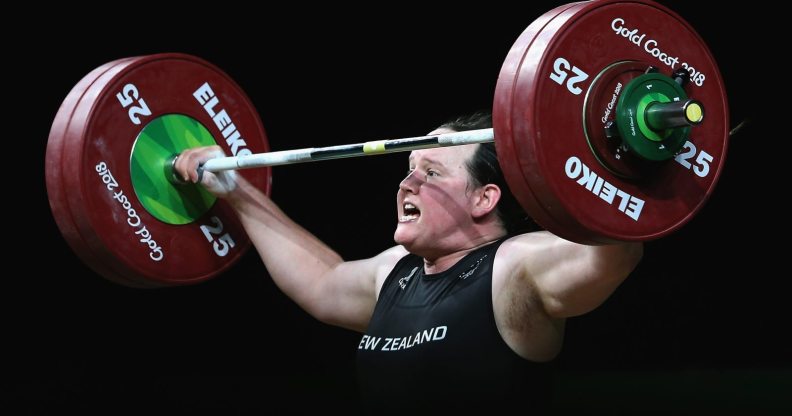
Hubbard just before her horrifying injury (Alex Pantling/Getty)
Laurel Hubbard, the first transgender athlete to compete for New Zealand, has said a horrific injury suffered at Monday’s Commonwealth Games has “probably” ended her career.
Hubbard made history at the Gold Coast Commonwealth Games by taking part in the 90kg-plus category and was in pole position for a gold medal – until disaster struck.
Despite leading the field with her first lift of 120kg, she went for a Games-record 132kg lift on her final attempt – but her arm buckled dramatically, and she had to withdraw.
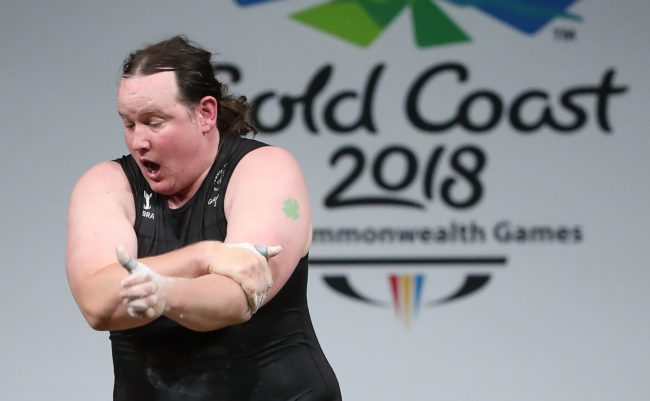
(Getty)
Speaking at an event for family and media today, the 40-year-old pioneer – who has had to combat anti-trans sentiment and continual opposition to her participation in the Games – made an upsetting announcement.
“My arm is busted,” Hubbard told the crowd, according to Stuff.
“It looks like it’s probably going to be a career-ending injury, which is a real shame, but I’m glad I’ve gone out trying to achieve my best on the platform.”
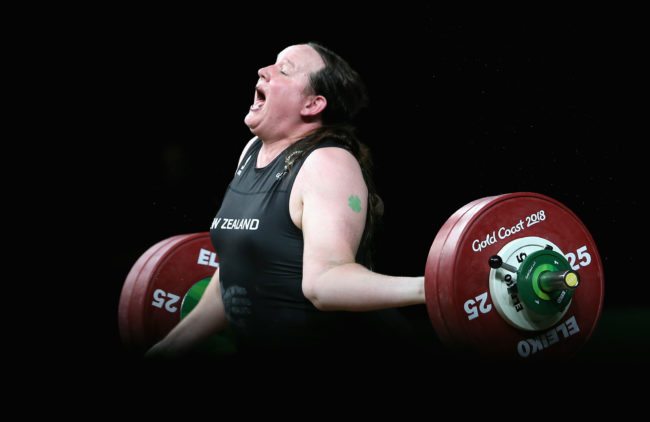
(Getty)
The athlete later issued a statement in which she said she had no regrets about pushing her limits.
“I would like to thank everyone for their support,” she said.
“I am waiting to see specialists back in New Zealand but it is likely the ruptured ligament in my arm will be career-ending.
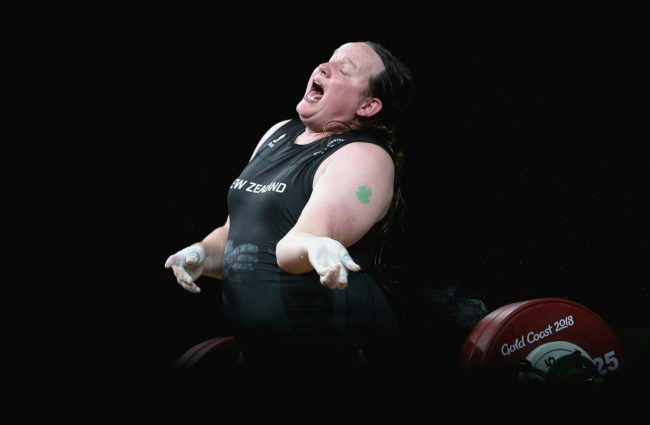
(Getty)
“I have always believed it is not enough just to wear the silver fern and I do not regret pushing myself to try to deliver my best-possible performance.”
After enduring the anti-trans barbs in the run-up to the Games, she told The Guardian that the support she had received on the Gold Coast had lifted her spirits.
“The Australian crowd was magnificent,” she said. “It felt like just a big embrace.”
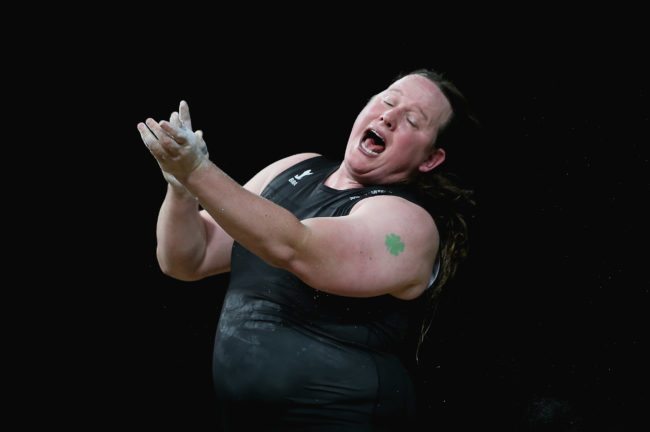
(Getty)
“They really made me try to lift my best. I gave it everything and I regret I wasn’t able to make the lift today.
“The Commonwealth Games here are a model for what sport can, and should, be. It’s an incredible environment and an amazing atmosphere.
“Without any doubt, they have lived up to the mantra of humanity, equality and decency.”
Hubbard, who was the top-ranked female weightlifter in the world before the Games, was forced to endure repeated attempts to stop her from taking part.
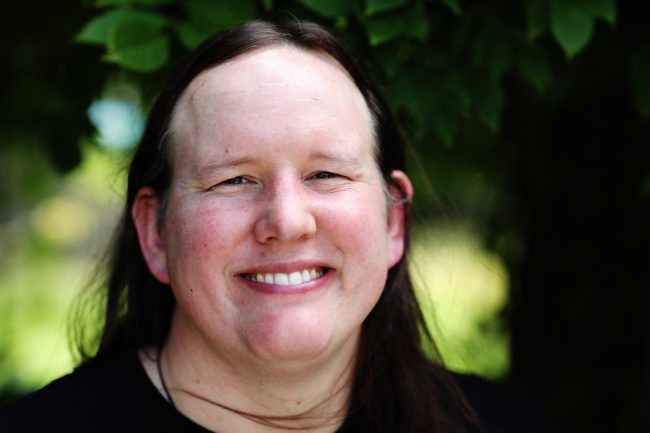
(Getty)
Earlier this year, the Australian Weightlifting Federation failed in a formal application to block Hubbard from the Games.
In order to compete, Hubbard had to prove that her testosterone levels meet strict criteria – and her last tests indicated that she has less testosterone than a cis female.
Nevertheless, Australian Weightlifting Federation chief executive Mike Keelan wrote that “it is our strong view that weightlifting has always been a gender-specific sport, male and female, not a competition among individuals of various levels of testosterone.”
“In our respectful view, the current criteria and its application has the potential to devalue women’s weightlifting and discourage female-born athletes from pursuing the sport at an elite level in the future,” he added.
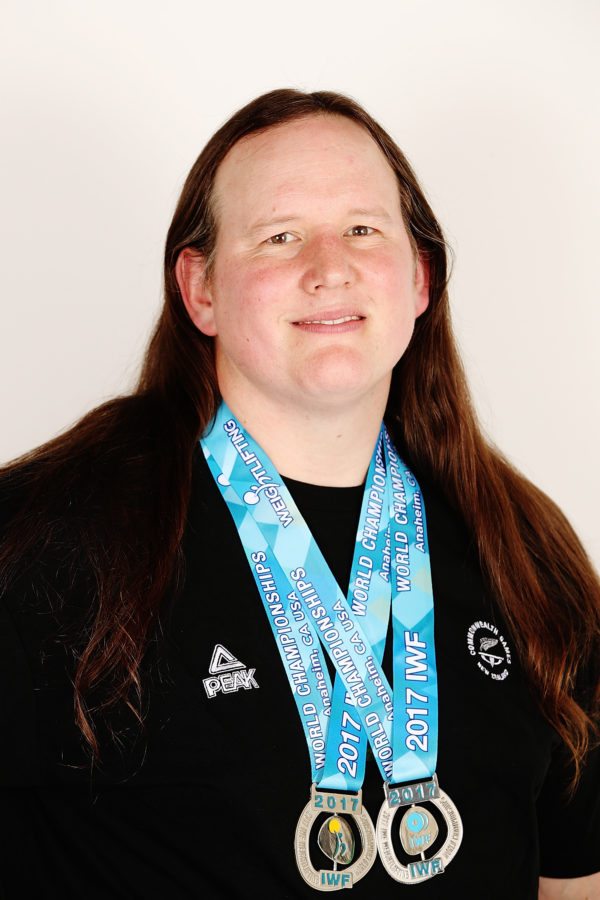
(Getty)
The Commonwealth Games Federation rebutted the anti-trans claims of Keelan and his federation, saying that “there is no moral, ethical or legal basis to prevent transgender athletes from pursuing their sporting ambitions.”
But Samoa Weightlifting Federation president and national coach Jerry Wallwork has repeatedly said that Hubbard should not be in the women’s category.
Earlier this week, he told ABC: “A man is a man and a woman is a woman.
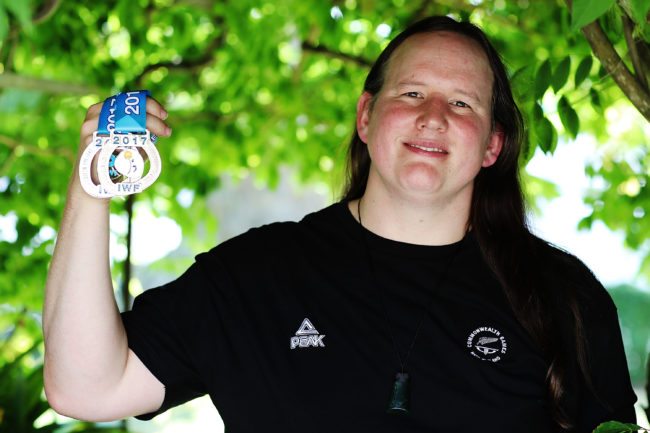
(Getty)
“And I know a lot of changes have gone through, but in the past Laurel Hubbard used to be a male champion weightlifter.”
He added: “The strength is still there and I think it’s very unfair, and for all females it’s unfair.
“The situation may have been accepted by the IOC, but that won’t stop us from protesting, regardless of whether it’s against one of our lifters or not.
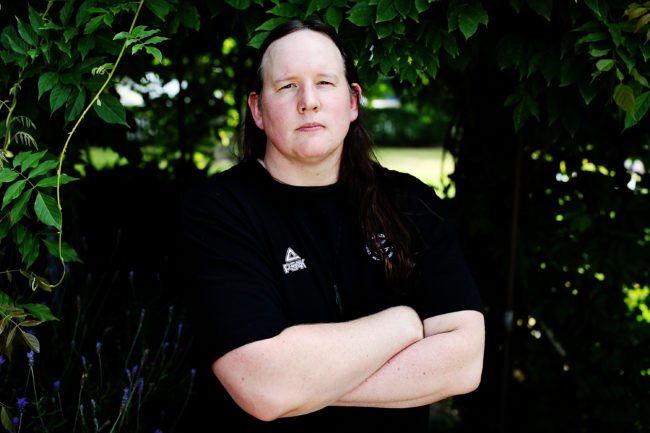
(Hannah Peters/Getty Images)
“It’s just very unfair.”
Hubbard said before the Games that “it’s not my role or my goal to change people’s minds.”

